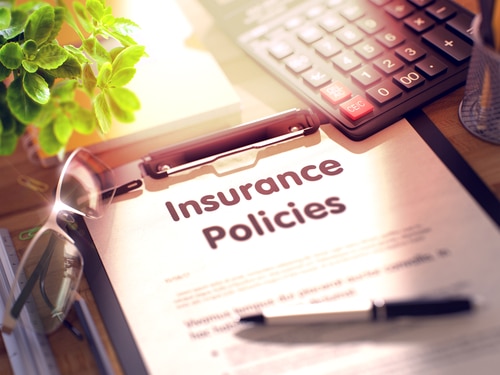
I Got in A Car Accident and Filed A Claim. Will My Car Insurance Rates Increase?
Our law office gets telephone calls all the time from people involved in Michigan car accidents who have questions about insurance. One of the most popular questions is whether or not their car insurance rates will increase if they file an insurance due to a car accident. This is a difficult question to answer. Every situation and every insurance company is different. However, this article seeks to explain what goes into insurance carrier’s decision making when setting car insurance costs after a Michigan car crash.
Types of Coverage
Before we get into specifics, we first need to understand the type of coverages available to Michigan policyholders. Every Michigan insurance policy must carry bodily injury (BI) coverage. This mandatory insurance covers persons if they are legally responsible for causing personal injury due to an auto accident. The minimum BI limit in Michigan is $20,000 per person and $40,000 per accident.
Almost all auto insurance policies also include Michigan no-fault coverage, or personal injury protection (PIP). PIP encompasses a number of benefits, but basically PIP allows for the payment of all medical expenses related to a car or truck accident, payment of 85% of lost wages, out-of-pocket reimbursement and payment for people caring for you.
There are other non-mandatory coverages as well. Under Michigan law, your own auto insurance pays for vehicle repairs due to a car crash, but only if you have purchased collision coverage. Collision coverage will also pay you the net present value of your vehicle if it is totaled.
Another type of insurance is comprehensive insurance. This coverage covers vehicle damage caused by a falling object, vandalism, striking an animal, or damage from fire or flood. It also covers stolen vehicles. This coverage is not mandatory.
When purchasing automobile insurance in Michigan, each of these coverages are separate and as such, contain their own cost elements. The amount of the cost for each coverage varies from policyholder to policyholder for a number of different reasons, some basic (prior crashes) and some controversial (zip code, age, credit score).
ISO Ratings
So given these different insurance coverages, how do Michigan car insurance companies evaluate and decide how much an insurance claim is going to cost? There are no specific rules for this, but there are certain patterns carriers follow. Each vehicle a person seeks to insure gets an ISO rating symbol. ISO (Insurance Services Office) is an organization that tracks property and casualty insurance risk as well as analyzes and rates an individual risk profiles. If a vehicle is considered more at risk, they are given a higher rating. A higher rating leads to higher premiums.
A number of factors go into vehicle ISO ratings. The make and model of your car is one such factor. Car safety ratings also matter. The better a vehicle holds up in a collision, the less risk it carries and the better the ISO rating. Vehicle value and whether you store your vehicle in a garage also counts.
Each vehicle has two ISO symbols assigned to it. One symbol is the danger of bodily injury and property damage, while the other symbol applies to medical costs. These symbols differ for each vehicle and affect the cost of insurance.
So even before an accident occurs, your car carries a specific risk profile. After an accident occurs, this risk profile changes, again depending on a number of factors.
How is the Claim Evaluated?
First, insurance carriers will evaluate what type of claim is opened and what coverages were activated. Remember, when a car accident happens, various insurance coverages may or may not apply. If an injury occurs, then a PIP claim may be needed. Sometimes both a collision claim and PIP claim will be opened. Once the claim is made, regardless of whether there is a collision claim or not, the claims department reports it to the underwriting department. When your policy is up for renewal, the underwriting department re-determines the rates. Risk calculations are normally all based on complicated actuarial formulas.
Auto insurance carriers will also evaluate who was at-fault for causing the accident. Often, the vehicle not at-fault for causing the accident will not result in a higher rate. However, again this is not always true as various factors affect car insurance rates.
Another factor auto insurance carriers evaluate is the amount of damage. If a claim results in more vehicle damage, the risk profile for that vehicle can change, altering the ISO rating. This can lead to higher rates.
Another important thing to understand is that it is very difficult to “hide from a car accident.” What I mean by that is car insurance companies will inevitably find out about the car accident, whether you make a claim or not.
Auto insurance companies check your driving record with the Michigan Secretary of State every renewal period. So even if you did not report an accident to your insurance company, the carrier will still learn about it because the Secretary of State through the Michigan State Police compiles a list of all car accidents and reports it to various authorities.
So even if you don’t make a claim, your car insurance may still increase by the same rate it would have increased if a claim was made.
Insurance Is Complicated: Talk to an Expert
Michigan car insurance is a very complicated topic. There are a lot of moving parts which give rise to changes in insurance costs following a car accident. Sometimes, rates will increase if you make a claim. Sometimes they won’t. Often, rates increase even if nothing happened at all.
If you have any questions about Michigan car accident law, please call the Michigan car accident lawyers at the Lee Steinberg Law Firm, P.C at 1-800-533-3733. Our dedicated team of legal professionals can answer your questions and walk you through the claims process.

